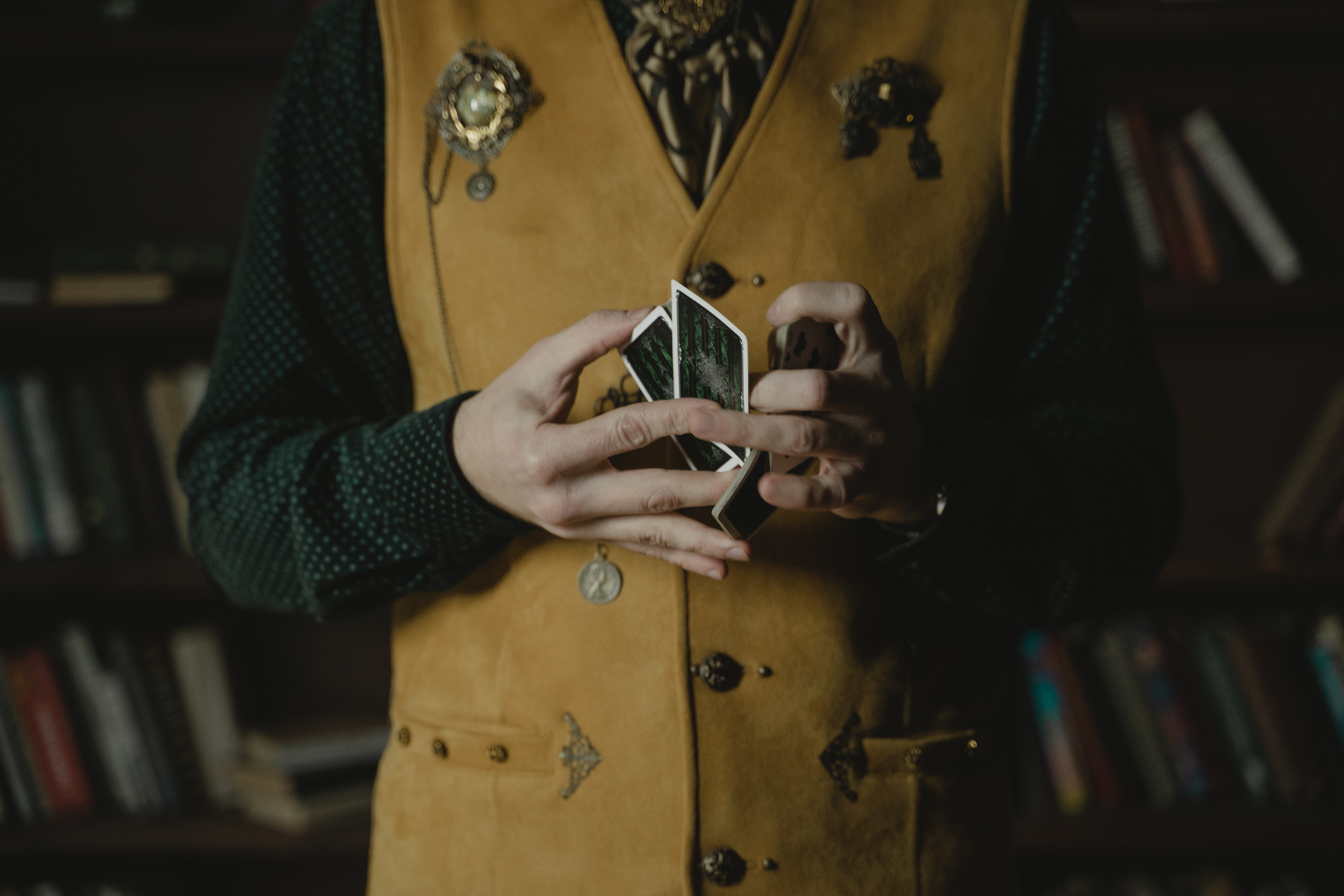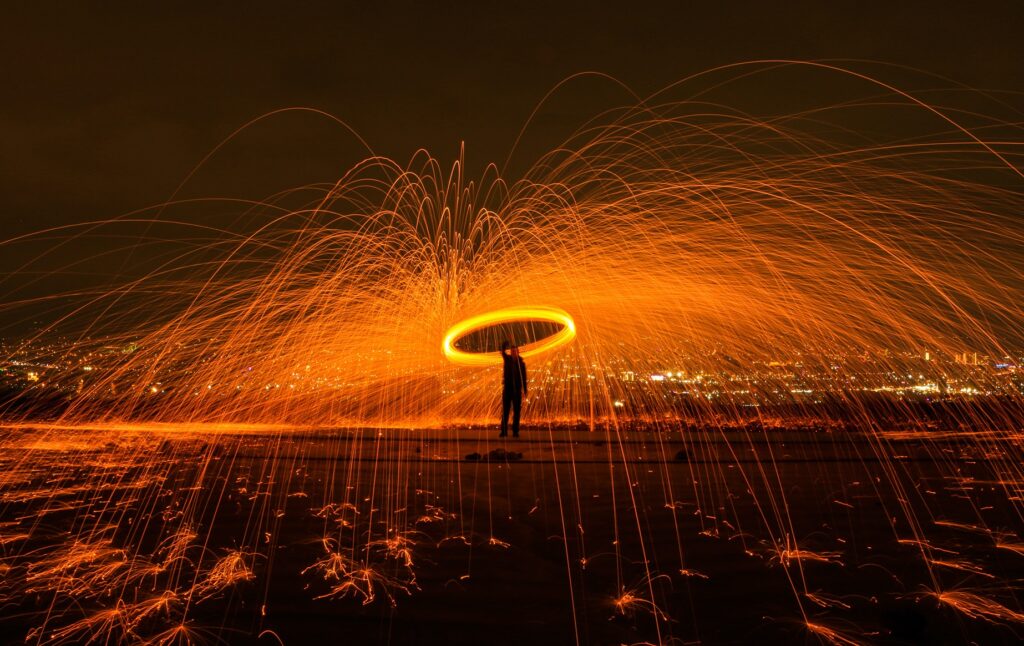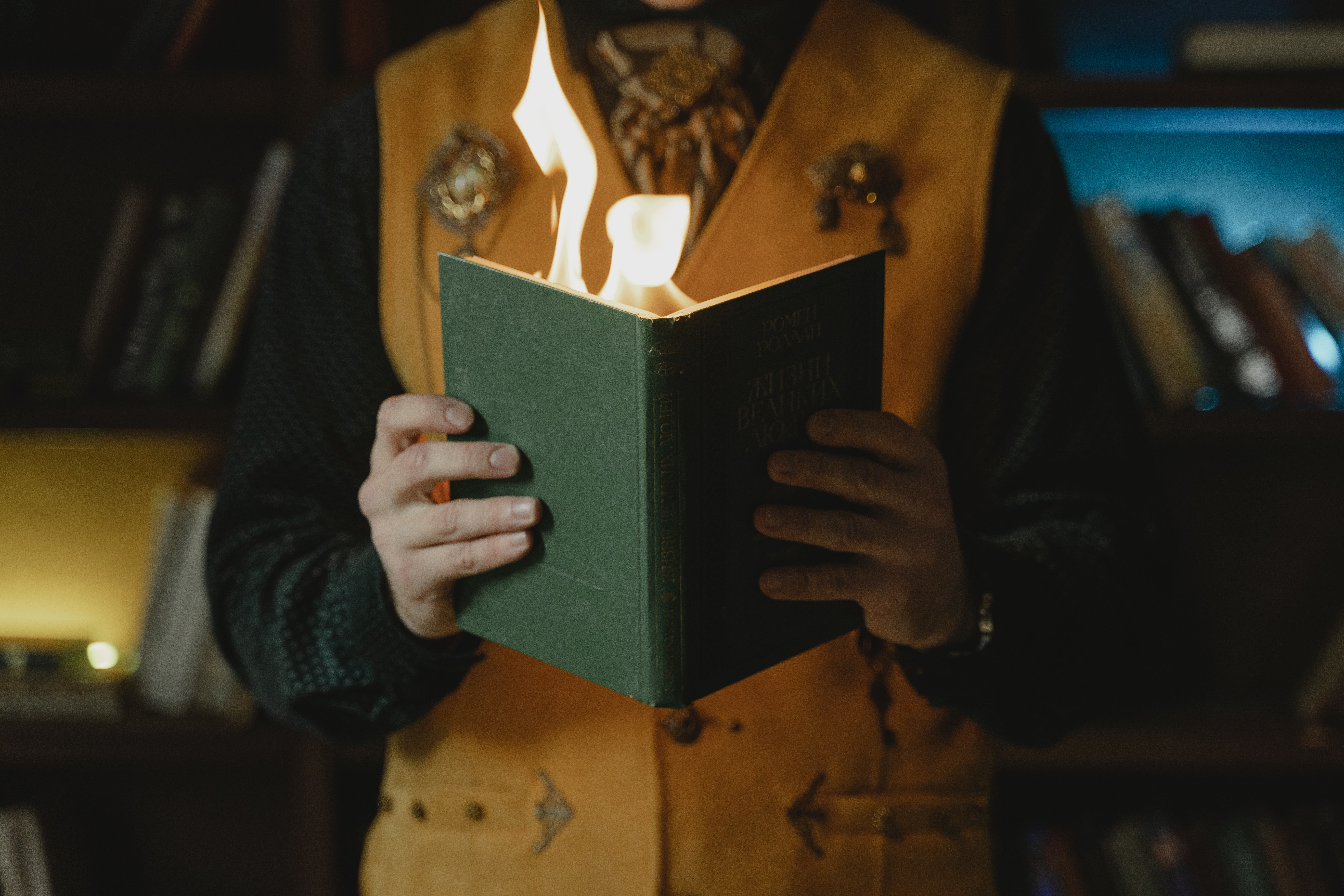If you have rhabdophobia, it could be challenging for you to work, sleep, socialize, or even leave the house. Most people are unaware that rhabdophobia or a condition closely equivalent to it is experienced by others. This article examines Fear of Magicians and Magic.
Additionally, the rhabdophobia’s causes, signs, and potential treatments. Let’s explore!
What Is Rhabdophobia?
What is the fear of magic called? Rhabdophobia, or the fear of magic, is a very individual phobia that can have many meanings for various people. Some people’s only source of dread is magick, the purportedly solid form in which spellcasters have absolute power over occurrences. Illusions are when a magician employs deception to make it seem strange things are happening. They are also known as stage magic or tricks.
Rhabdophobics are absolutely and utterly terrified of witches, magicians, and spellcasters: anything or anybody with the power to cast or control them as they like. Illusions and even stage magicians’ tricks can be frightful for certain people. Because this phobia is so uncommon, those with it are lucky not to experience daily symptoms. Rhabdophobia, in contrast to phobias that are more severe and pervasive, frequently has little impact on a person’s daily activities.
People who have a fear of magic phobia could also fear criticism or physical punishment. A severe case of this fear might exist.
Types of Magic Fears
Following are the types of fears involved in magic
Stage Magic Fear and Phobia
Stage magicians typically frighten young babies, but most people eventually overcome this anxiety once they learn to distinguish between fiction and reality. Dread, though, can strike anyone. Although it doesn’t always happen, apprehension about witchcraft frequently serves as the impetus for disliking stage magic. Even though you understand that the magician is just an illusionist, you could still feel afraid if you can’t figure out the trick.
Only expanding your knowledge of stage magic is often sufficient to alleviate your concern. Although every magician gives a trick a special twist, most stage illusions fit into a few fundamental categories. Knowing how a more straightforward rendition of the trick works might make it easier to perform magic on stage, which can help reduce stage fright.
Geek Magic
Geek magic is a type of stage magic that incorporates both vintage illusions and contemporary freak show themes. It is frequently referred to as geek magic or strange magic. Things like swallowing a sword, laying on a bed of nails, and consuming fire are typical elements. Some phobias, like the fear of blood, needles, and sharp things, could be made worse by geek magic. Before the performance, send a friend to see if they can pick up on anything that might be uncomfortable.
You might enjoy learning about magic if you are not afraid of it. But this would not amuse someone who dreaded magic. A phobia is a particular dread that impairs a person’s capacity to perform daily responsibilities. In other words, the suspicion affects at least some elements of the person’s life for reasons that appear nonsensical to those of us who do not have rhabdophobia.
The Fear of Magick

Magick is the practice of just influencing the cosmos through one’s desires. Many different types of spellcasters have employed it throughout history. Although science argues that magick does not exist, many religious organizations disagree. But there are significant cultural disparities in how other tribes perceive witchcraft’s strength, worth, and peril. Even though some religious movements distinguish between “white” and “black” magic, others believe that all magic is harmful and may even be demonic.
Magical fear is typically primarily derived from religious concerns. Those going through a spiritual crisis could worry about this more regularly.
People are more prone to fear the outcomes if they think they have been cursed or hexed. Even if occasionally believing in witchcraft may indicate abnormal thinking, most therapists accept their patients’ religious beliefs. Professional therapy and spiritual counseling are frequently employed to cure this phobia.
The leading causes of rhabdophobia
Those who have a fear of magicians and magic go through an anxiety disorder called phobia, characterized by an overwhelming dread concerning the actual threat.
Stress
The leading cause of the majority of anxiety disorders, including phobias, is ongoing, chronic stress. Over time, stress may cause you to question your capacity to handle a particular circumstance, which causes you to fear that circumstance.
Past event
The person might have grown afraid of magic due to some awful incident in the past. People who have seen a magician perform and then experienced a trauma that their mind has come to correlate with magic are more likely to feel this type of dread.
Response
This fear is heightened by the simple act of reacting shamefully to one’s dread. Your loved ones could become upset with you because of your worry, making you feel even more fearful.
Genes
There is a cause for the higher prevalence of this and other anxiety disorders in some individuals.
Family dynamics
Phobias can be inherited from your family. Because of their parents’ or caregivers’ tremendous worry or anxiety, young, impressionable brains may grow to dread magic.
The patient may need to develop a strategy to pinpoint the specific source of their phobia if it turns out that none of the previously mentioned causes is what is causing them to feel dread. If you happen to be so afraid of magic that you can’t even stand to talk about it or think about it, your fear of magic can develop worse over time. This may make it difficult for you to face your fear. In this case, seeking professional advice is the advised course of action.
What Are the Symptoms of Rhabdophobia?
Extreme, irrational, and enduring phobias are anxiety-inducing fears about a particular behavior, quality, setting, or circumstance. Phobia symptoms include:
- Feeling disconnected from reality
- Fear of losing control
- Ideas about death or dying
- Fear of embarrassing oneself
- Shaking, trembling
- Feeling lightheaded or weak
- Increasing heart rate
- Sweating
- Cold and hot flashes
- Breathing difficulty
- Nauseous and vomit
- Chest constriction
- Choking sensation
Panic attacks can occasionally be brought on by very severe phobias. Going through this could be brutal or even terrifying. The person might become incredibly worried at the simple mention of their issue. Ideas that would cause depression might then result from this.
Severe rhabdophobics typically avoid magically active areas. They also try to prevent social connections, which could lead to social disengagement and isolation. One instance where avoiding something makes it worse is phobias.
How to Deal With Rhabdophobia?

Rhabdophobia can be treated with medication. However, there are other non-medical options. Depending on how severe a person’s phobia is and what initially gave rise to it, the type of therapy they undergo will vary. Effective phobia treatments include psychotherapy, medication, and exposure therapy.
Medications
Pharmaceuticals used to treat phobias include antidepressants, anti-anxiety medications, beta-blockers, beta-blockers coupled with antidepressants, benzodiazepines, and tricyclic antidepressants.
While sedatives impacting your neurological system include benzodiazepines like Xanax, Klonopin, and Valium. They decrease phobias by reducing anxiety. On the other hand, antidepressants are frequently successful in treating rhabdophobia. You should be aware that some medications can adversely affect those you are already taking. Tell your doctor whether you are currently taking any medications.
Psychotherapy
It entails repeatedly exposing the patient to the thing they are most scared of, with exposure treatment making up the majority of exposure sessions. When people have rhabdophobia, they are gradually exposed to imaginative, unnerving images before being subjected to more obscene scenarios, which could include anything from a tiger popping its head out of a box to a bunny riding a unicycle.
Hypnotherapy
Rhabdophobia hypnotherapy incorporates the fundamental principles of CBT by educating patients on how to manage their anxiety using the relaxation skills they have been practicing during sessions. An altered state of consciousness called daydreaming occurs when a person awakens but entirely at ease. Hypnosis for phobias involves replacing destructive beliefs with positive ones.
Bottom Line
Although getting professional assistance is typically the best course of action, you should never disregard any phobia. It may gradually take over your life, doing even the simplest chores challenging for you to complete.
If you have a fear of magicians and magic, the best news is that you can now get over your fear or phobia because of modern therapies that are simple to obtain. Consult a mental health expert to determine the best course of action if you or a loved one has rhabdophobia.
FAQs
Why are people so afraid of magic?
Rhabdophobia, or the fear of magic, is a very individual phobia that can have many meanings for various people. Some people’s only source of terror is magick—the purportedly solid form in which spellcasters have absolute power over occurrences. When a magician uses trickery to make it appear weird things are happening, that is an illusion. They are also referred to as tricks or stage magic.
Should I fear magic?
Magical apprehension is often primarily fueled by religious concerns. People may become more concerned about this during a spiritual crisis. People are more prone to fear the outcomes if they think they have been cursed or hexed. Even if occasionally believing in witchcraft may indicate disordered thinking, most therapists accept their patients’ religious beliefs. Professional therapy and spiritual counseling are the two most frequently used remedies for this fear.

